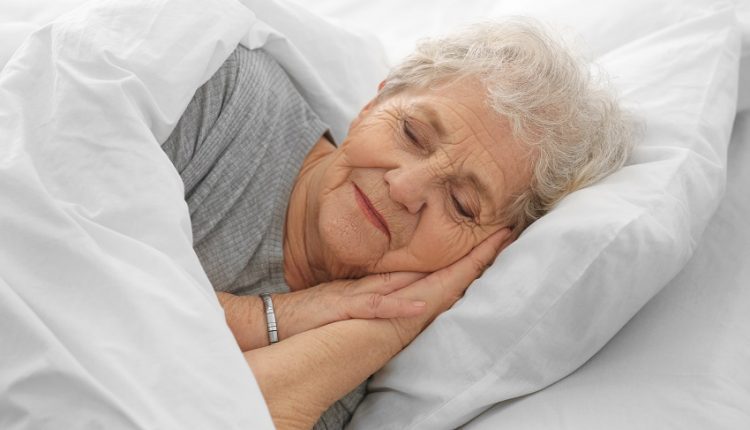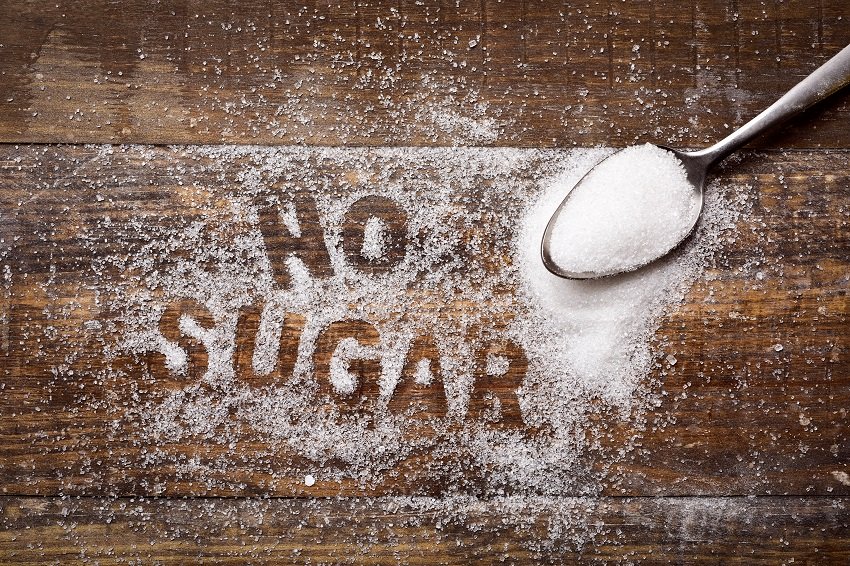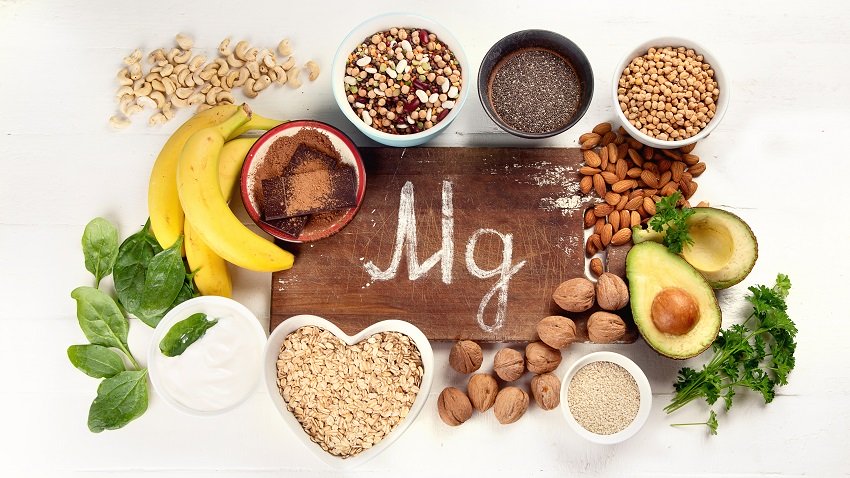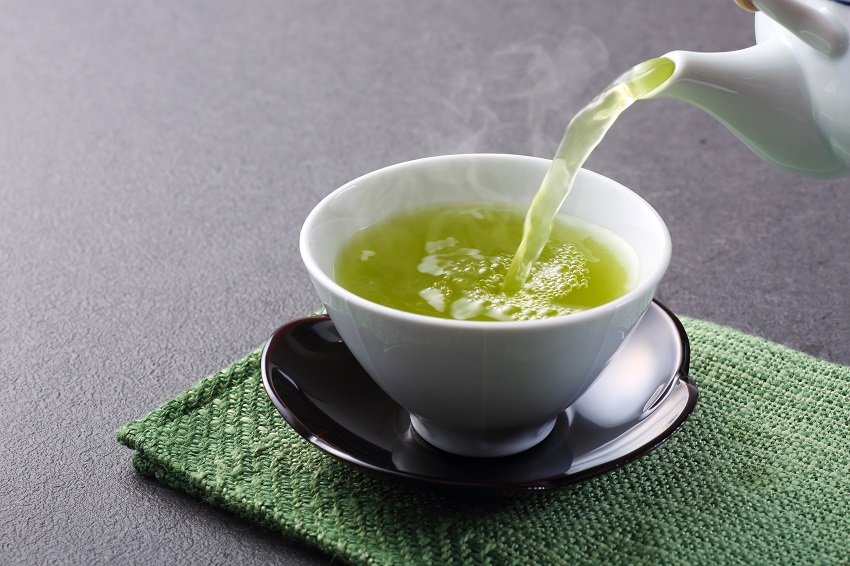
Better Sleep Quality for Seniors through Nutrition
Sleeping is essential for the body to help it recover its lost energy during the day. However, not all seniors enjoy quality sleep. Scientists have discovered that stress is the main reason for experiencing insomnia and lower sleep quality in seniors. When we are stressed for a long time, we may endanger our health due to increased inflammation in the body. Besides, stress hormones can cause obesity in different parts of the body. Abdominal fat increases the risk of heart disease and stroke. Under stress, we stop doing habits that help our health, such as exercising and eating well. Stress also makes it difficult to fall asleep. But how can we fight off stress and improve our sleep quality in our senior years? In today’s article on Living Maples Mag, we will introduce some foods to help you reduce your stress and enjoy better sleep quality.
Getting proper sleep (7 to 9 hours per night) is just as crucial to your health, physical and mental well-being as having adequate nutrition. However, likely, we will not get a good night’s sleep. The American Psychological Association (APA) estimates that 60 percent of Americans have trouble sleeping at least a few nights a week. The US Centers for Disease Control and Prevention (CDC) also reports that about 30 percent of seniors cannot get the average amount of sleep they need to stay healthy.
Read More: Elderly Sleep Disorders: Symptoms and Tips to Control
The Effects of Lack of Sleep on Seniors
Permanent sleep deprivation not only causes us to be moody and lazy but also has other side effects:
- Sleep deprivation affects performance, impairs concentration and thinking power, and reduces a person’s multitasking ability. When we lack sleep, it becomes more difficult to make crucial decisions, and we are more likely to make mistakes.
- Insomnia causes a delay in reaction time, which is dangerous for seniors driving or doing some tasks requiring a higher concentration.
- Lack of sleep causes cravings. The hormone that sends the brain’s hunger signals is disrupted by lack of sleep, and an insatiable appetite develops. Simultaneously, the hormone responsible for transmitting the satiety signal is also disrupted by lack of sleep. This creates the possibility of overeating, which is dangerous for seniors.
- Insomnia causes more fat to build up in the body due to increased cortisol secretion. Cortisol (stress hormone) increases the accumulation of fat in the body.
- Insomnia increases the risk of colds in seniors. Researchers have found that seniors who sleep less than six hours a night are four times more likely to get sick than those who sleep more.
Nutrition to Relieve Stress and Sleep Better
Here is a detailed nutrition guide that can assist you in getting better sleep.
Eat More Fibre and Less Saturated Fat
In a study on the effects of nutrition on sleep, researchers found that a low-fibre diet with high saturated fats (found in red meat and high-fat and low-fat dairy products) leads to lower sleep quality. This diet leads to more night awakenings and less deep and refreshing sleep.
About half of seniors do not consume the recommended amount of fibre; This amount is about 25 to 35 grams per day. In the form of a mixture of soluble and insoluble fibre, this amount of fibre can be provided by a diet containing fibre-rich plants and foods, such as fruits, vegetables, beans, nuts, seeds, and whole grains.
Since a sudden increase in dietary fibre can have adverse effects on the gastrointestinal tract, we must add the necessary fibre to our food over time and, at the same time, be sure to drink plenty of fluids. Both of these give the body a chance to adjust to a new, healthier routine.
Limit Sugar Consumption to Have a Better Sleep

Excess sugar also causes sleep disorders. According to the American Heart Association, the maximum intake of sugar is six teaspoons per day for women and nine teaspoons per day for men. To sleep well, you need to keep your sugar intake within the allowable range. If you think your sugar intake is limited to the amount you add to your tea and coffee, take a closer look at the descriptions on food labels to determine how much sugar they have. Bread and breakfast cereals (even those with whole grains), vegetable milk (soy milk, almond milk, coconut milk, etc.), condiments, flavoured yogurts, industrial soups, granola, and sausages are some of the foods that contain added sugar.
Ensure Enough Magnesium
Magnesium is a soothing mineral that helps us not burn out in the face of stress. Magnesium is involved in pathways that regulate the amount of stress experienced and controls symptoms such as palpitations, nausea and headaches.
Besides, when we are stressed, we excrete magnesium through urine or sweat. Researchers have suggested that most seniors do not get enough magnesium through their diets. Inadequate magnesium intake causes sleep problems, so getting more magnesium can help calm our minds and get better rest.

Green leafy vegetables, beans, nuts, seeds, whole grains, and dark chocolate are rich magnesium sources. Using these sources can provide the amount of nutrients your body needs. However, if you are having problems consuming magnesium-rich foods, it is better to talk to your doctor or nutritionist about taking magnesium supplements, as some common types of magnesium supplements cause abdominal pain and possibly diarrhea and are not suitable for seniors.
Quench the Craving for Sweets with Dark Chocolate

In addition to delivering magnesium to the body, dark chocolate has been shown to reduce stress hormones (cortisol). It helps to control the physical effects of stress better. Magnesium is also suitable for controlling the emotional impact of stress. Nutrition experts suggest that seniors eat 42 grams of dark chocolate every day. Consuming more than this amount can exceed the daily sugar intake allowed and can cause blood sugar issues.
Eat Omega-rich Foods for a Better Sleep
Salmon and sardines are rich sources of omega fatty acids. These anti-inflammatory fats, along with some nuts and seeds, can regulate mood. In a limited study on seniors, these fats addition reduced anxiety symptoms by up to 20%. To increase your omega-3 intake, eat seafood at least twice a week.
Add Complex Carbs to Sleep Faster
Complex carbohydrates improve sleep in several ways: by triggering natural chemical reactions involving amino acids and, in many cases, preventing blood sugar fluctuations that may interfere with rest.
Brown rice, oatmeal, and popcorn are excellent sources of complex carbs. They also contain high levels of the amino acid tryptophan. The whole grains found in these foods also naturally stimulate insulin production. Hence, they can regulate blood sugar, which plays a vital part in falling asleep fast.
Relax with A Warm, Soothing Drink

A glass of warm milk is a classic bedtime ritual for a reason, but it’s not the only beverage that eases the nervous system. You can also drink herbal teas such as chamomile and peppermint to relax your mind and body and stave off stress to prepare for a sound sleep.
Warm milk and honey also act as a natural sedative for seniors to enjoy better sleep.
Limit Caffeine Consumption
We know that caffeine is a substance that refreshes us, So it is natural that it is not good to consume it before going to bed. Caffeine can affect sleep for up to 6 hours after consumption. It is important to note that stress and anxiety increase caffeine consumption.
Try to say no to coffee and other caffeinated beverages in the afternoon. Also, please pay attention to the symptoms it causes when you use caffeinated substances. If you find caffeinated drinks, make you feel worse, drink the decaffeinated ones.
Final Words
Sleep is essential for the better functioning of our body. Stress can have a detrimental effect on the quality of our sleep. By consuming foods that can reduce our stress, we can experience better sleep and improve our quality of life in old age.
I had difficulties with my sleep routine, but I realized that diet is essential for good sleep quality. I started eating nuts during the day and drinking a cup of warm milk with honey in the afternoon. Warm milk reduces my stress and makes me calm, and nuts are great for relaxing the muscles. Thank god, now I have a better sleep quality.
I have sleep problems like insomnia and nightmares, and I don’t know what to do. I’m 63 years old and recently had a period of depression. I will be happy if someone recommends a solution.
I am 68 years old, and I always eat a banana before bed. It helps me reduce my stress and improve my digestion, but it never helps me sleep. I have tried everything mentioned above. I also have a bedtime routine, optimized my sleep environment, and implemented a relaxation technique, but none worked for me. Can someone recommend me a solution?
My main issue is overthinking, and it’s disrupting my sleep routine since last year. I can’t fall asleep quickly cause my mind is so busy that it somehow forgets to be relaxed and enter the sleep cycle. It tortured me every night until I found a professional therapist. I’m still struggling, but I want to share one of my therapist’s helpful suggestions. It’s a breathing technique. You need to take deep breaths and focus on the path of your breath through your body. Doing this can distract your mind and make it empty for a few minutes, leading to better sleep.
This article on better sleep quality for seniors through nutrition is a great resource! As someone who has struggled with sleep issues as I’ve gotten older, I appreciate the practical tips and advice provided here. It’s interesting to learn how certain foods and nutrients can impact sleep, and I’m eager to incorporate some of these suggestions into my diet. Thank you for sharing this information!
It’s wonderful that this article addresses the importance of nutrition regarding sleep quality for seniors. Too often, we focus solely on medications or other interventions without considering diet’s role in improving overall health and well-being.